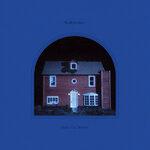
Skullcrusher Quiet the Room
(Dead Oceans)
The first thing to consider about Skullcrusher is its noticeable paradox. Fronted by singer-songwriter Helen Ballentine and collaborator Noah Weinman, the folk-meets-ambient project doesn't necessarily make you think of a threatening or dangerous situation if you're only going by her peculiar moniker. That said, there's also inherently distressing about the haunting textures that permeate throughout her lush, elegant songs. Guided by simple strumming rather than intricate fingerpicking, the bulk of Quiet the Room serves as a place of contemplation, self-identity, and beauty. She's in a curious position compared to today's female singer-songwriters, as she's less driven by confessional indie-rock but also not tied to the '70s psych-folk she occasionally emulates.
A quiet background of hiss surrounds Ballentine's spacious ambiance, feeling like a natural extension of her environment. A theme that connects throughout begins early in They Quiet the Room, as she considers whether the things left unsaid can bring about confusion or emotional repression. There's also a spectral quality that doesn't really unveil whether she's speaking about the living or a spiritual being, even if the rural imagery of Building a Swing makes us believe she's thinking about the past. Her use of sparse, plinking piano and gentle strings provide a calming effect to what feels like watching home movies in a dreamlike state.
Ballentine also explores scenes of her youth with vivid detail, adding touches of magical realism to add a fuller picture of her inner world. She positively beams on Pass Through Me, one of the album's more sanguine moments, curiously comforted by a gentle apparition that watches over her window. Outside, Playing also evokes the gentle innocence of Seven Swans-era Sufjan Stevens, a banjo-led instrumental that perfectly conjures the image of its title despite its eerie undertones. And as it subtly insinuates, a distorted frequency abruptly distorts the jolly memory. The little touches throughout, from the audio recordings of her youth to swings and creaking windows, further illuminate her imaginary abstractions.
Similarly, Ballentine modulates her vocal range to suit its languid mood. She often sticks to a whispery quiver regardless of its shifting scope, like on the soul-crushing Lullaby in February, playing a minimal chord over an icy terrain before it turns into a dark, cavernous throb. Whereas on the slightly renamed title track, she's yet to come to any resolve, though the surprising clarity of her voice implies she's found some perspective to go with her distress. It reveals a new side of Ballentine, which, likewise from a musical standpoint, sounds like night and day if one considers the earthier tones of her self-titled debut EP.
Equally transcendent and grounded in reality, Ballentine reminds us of the hurt and the wonder of recapturing lost youth. If there's one thing that holds back Ballentine's otherwise gorgeous mood piece, it's how Ballentine hasn't quite developed a musical identity of her own. After spending some considerable with it, the heavy use of ambient textures bestows an overall preciousness that distracts from the album's emotional center. Despite these shortcomings, Quiet the Room is a worthy addition comparable to Julianna Barwick's The Magic Place and The Innocence Mission's We Walked in Song, chamber folk reveries so entrenched in their own little worlds you can practically live inside them.
14 October, 2022 - 00:54 — Juan Edgardo Rodriguez